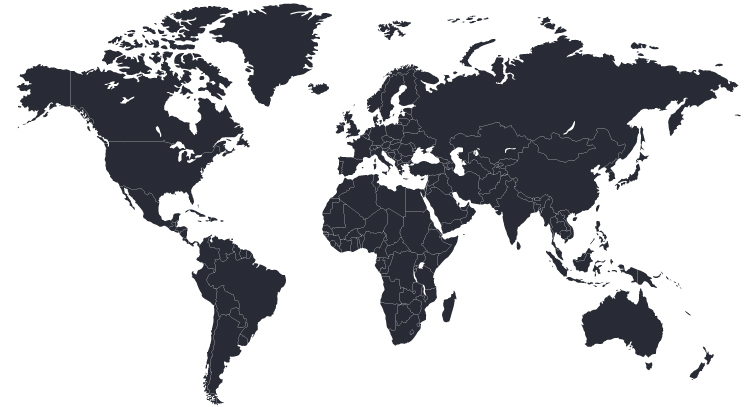Project
Commonwealth Electronic Evidence Focal Points network
About
Cybil code: G0849
Status: Finished
From: Jul 2018
To: Jul 2023
Implementors
Partners
Warning: Undefined variable $block in /home2/cyb1lp0/public_html/wp-content/themes/cyber/inc/nick-functions.php on line 139
Themes & Topics
Region


Countries
Contact
Dr. Tawanda Hondora
Summary
The project enabled the establishment and capacity building of the Commonwealth Electronic Evidence Focal Points network. This network, which connected 46 Commonwealth countries by 2020, augments the Commonwealth Network of Contact Points (CNCP) system.
Details
Aim
The aim of the project was to establish an Electronic Evidence Focal Points network that exapands the role and mandate of the CNCP system. It placed emphasis on building the capacity of national contacts points to enhance pan-Commonwealth and international cooperation on criminal matters, including on the effective investigation and prosecution of those suspected of committing cybercrime.
Context
In a technology-driven world, international cooperation in cyber crime investigations is critical, not least because a large proportion of cases involve a transnational element. But while an increasing number of Commonwealth countries have programmes and legislation in place to improve resilience and tackle cyber threats, a focus on prevention alone is unlikely to be effective. Alongside this, traditional methods of policing, gathering and interpreting evidence, and prosecuting cases need to evolve to ensure that cyber crimes can be dealt with effectively across entire criminal justice systems.
In 2018, Commonwealth Heads of Government adopted the Commonwealth Cyber Declaration in recognition of the economic, social, cultural, and political benefits derived from digital technologies and the need to address arising crime and security risks. Supported by the United Kingdom’s Foreign, Commonwealth and Development Office, the Secretariat has supported, since 2018, Commonwealth Caribbean countries to strengthen their anti-cybercrime legal, policy and institutional frameworks, including through the training of key justice sector stakeholders on electronic evidence.
- Phase 1 (Jul 2018 – Mar 2020) under the Commonwealth Cyber Programme
- Phase 2 (Nov 2020 – Mar 2023) under the Combatting Cybercrime in the Commonwealth Programme
This project is earmarked to end in March 2023.
Outcomes
The electronic evidence training project has helped establish professional, well-trained law enforcement and prosecution services across the Commonwealth, which are equipped with the resources and skills needed to address the demands of modern crime.
The Hon Justice Maria Wilson, a High Court Judge in Trinidad and Tobago stated that:
“I thought the final exercise, which was a practical exercise on giving evidence in Court, was very useful. It confirmed for me the point that that both Judges and Prosecutors and Police officers should be on the same page with the kind of evidence that is required to prove a cyber crime in court. This would assist Judges in assessing the relevance of evidence and consequently whether the evidence is admissible.”
The project has led to the establishment of a designated focal point for electronic evidence for 46 countries out 54 member countries. Eighteen countries attended a working group meeting on electronic evidence, sharing information and knowledge around the latest developments in their countries, as well as challenges and good practice in the implementation of laws on electronic evidence. A series of recommendations were agreed by Commonwealth Law Ministers leading to a revision of the Commonwealth Model Law on Electronic Evidence.
Outputs
The outputs from the regional training events were:
- Delegates had a greater understanding of key elements required for requesting and securing e-evidence from preservation to mutual legal assistance requests.
- Delegates identified gaps in their legislation to enable requests from other States for e-evidence in their State or for domestic investigations.
- Delegates shared knowledge of lessons learned from cybercrime investigations.
- Delegates were exposed to Service Provider practices and procedures to secure e-evidence – specifically sending direct requests and emergency disclosure requests.
- Delegates used the Model Forms for preservation and emergency disclosure requests in a group exercise and have greater confidence to use in practice.
- Delegates have received a Training Brief to train colleagues in their home states.
Activities
To promote better use of electronic evidence in cross border criminal investigations, a series of workshops and exercises was held, looking at cyber crime as not simply a matter for law enforcement, but part of a shared challenge affecting different parts of the criminal justice system. The project brought stakeholders together from across the Commonwealth and provided an environment in which shared solutions to key issues could be developed. For example, law enforcement officials were asked how they would go about collecting and analysing evidence that might be on a computer or mobile device, while judges discussed the utility of different types of evidence.
Better cooperation in criminal investigations was also an ambition with the expansion of the Commonwealth Network of Contact Persons (CNCP) to improve electronic evidence sharing. Live role-playing scenarios were held at three regional events in Barbados, South Africa and Australia, to provide a forum for key contacts in Commonwealth countries to test their collaboration skills. A virtual exercise was also held to test that skills were embedded by the electronic evidence training.
The following provides further information on the regional training events.
REGIONAL EVENT: Regional Training Workshop on International Cooperation for the Caribbean, March 2019, Barbados,
ATTENDEES:
- Barbados.
- Guyana.
- Jamaica.
- St Vincent and the Grenadines.
- Antigua and Barbuda.
- Dominica.
- St Lucia.
- Foreign and Commonwealth Office, UK Government.
- UKCAU.
- CARICOM IMPACS.
- GPEN.
The results of the training are described in the Outputs section.
Websites
- https://thecommonwealth.org/our-work/commonwealth-cyber-declaration-programme
- https://www.gov.uk/government/publications/uk-commonwealth-cyber-security-programme-case-studies/uk-commonwealth-cyber-security-programme-selection-of-6-case-studies
The Cybil project repository is being continuously updated, and the information it contains is either publicly available, or consent for publication was given by the owner. Please contact the portal manager with any additional information or corrections. Whilst every reasonable effort is made to keep the content of this inventory accurate and up to date, no warranty or representation of any kind, express or implied, is made in relation to the accuracy, completeness or adequacy of the information contained in these pages.







